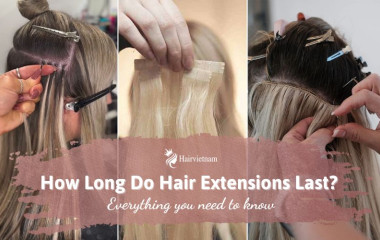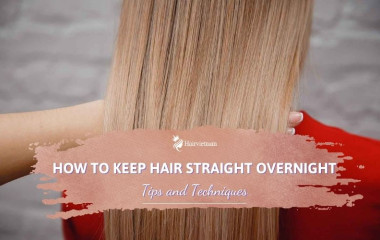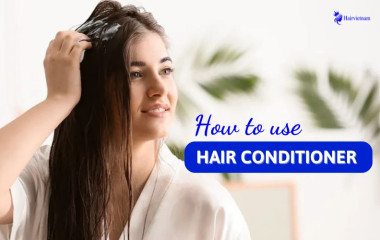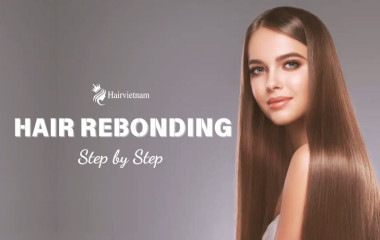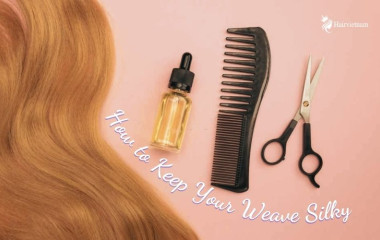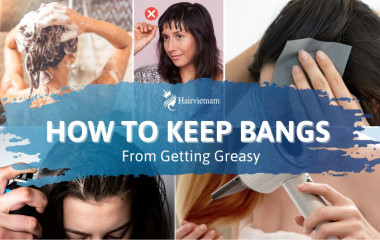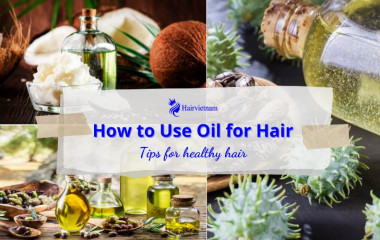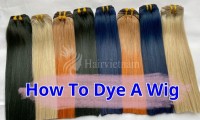Why Is My Scalp Tender in One Spot? Understanding the Causes
25/03/2024
Content
Wondering why is my scalp tender in one spot. Explore the causes of scalp tender in one spot and treatments. Find relief and understand scalp health better.
You have ever sat down and stared at that one tender spot on your scalp and wondered where it came from? It's Scalp tenderness. If you happen to find that you are among those asking why is my scalp tender in one spot, here is the answer. Ignored as a little hassle, it, in reality, impacts well-being and comfort substantially. This article aims to unfold the secret behind the cause of scalp tenderness in one spot and go beyond to offer detailed guidelines for best practices in relief. Read to learn everything.
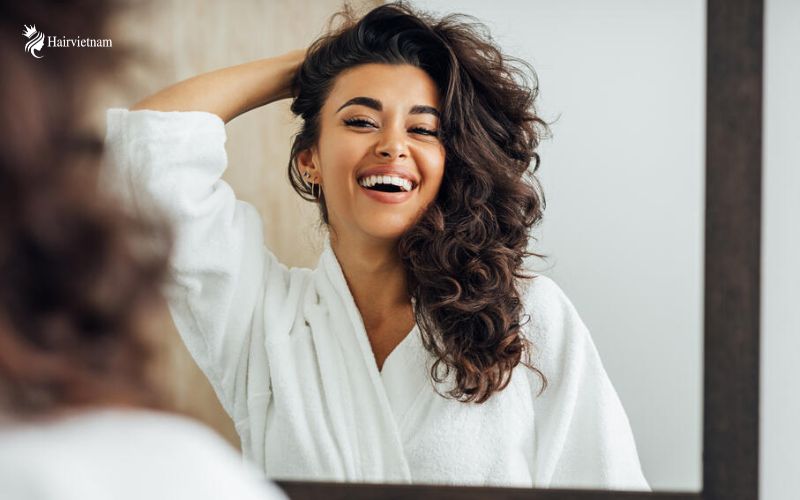
Understanding Scalp Tenderness
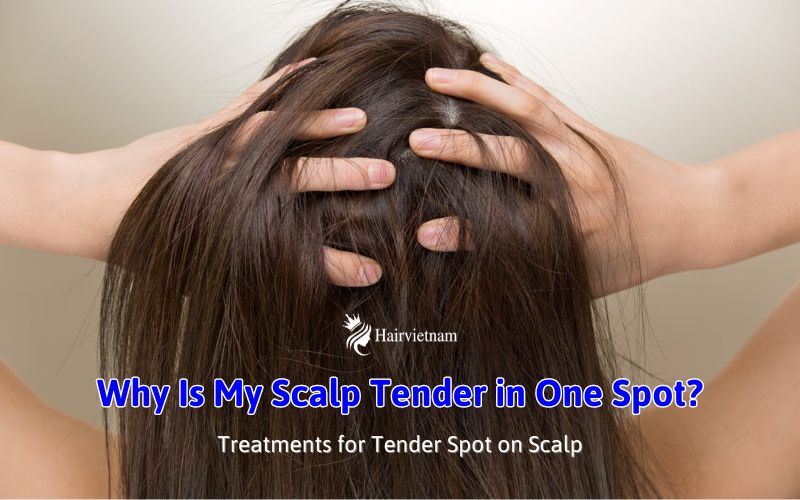
Contact dermatitis may be initiated by a variety of factors like genetics, overactive immune system, allergies, or irritants that include aggressive hair care products, harmful environmental pollutants, and some fabrics. Skin trigger factors, recognition gentle skin care products and scalp treatment application are the features of management.
Early intervention with antimicrobial drugs, antibiotics, or antifungals is imperative to prevent further development of the condition and lead to restoration of the scalp's health.
Scalp psoriasis in particular, requires specific treatment as it may be treated with topical corticosteroids and vitamin D analogs or tar-based products and phototherapy to control symptoms and prevent flare-ups.
HairVietnam Factory are widely known for their superior quality and versatility. These extensions are designed with attention to detail and quality in order to achieve a natural look and feel. It is safe to say that you should strictly observe instructions of care and give your hair a rest from extensions to make your scalp healthy. Whether you're after some extra length or body, or to help you style, hair extensions by HairVietnam are the ideal extensions that will let you do it with confidence.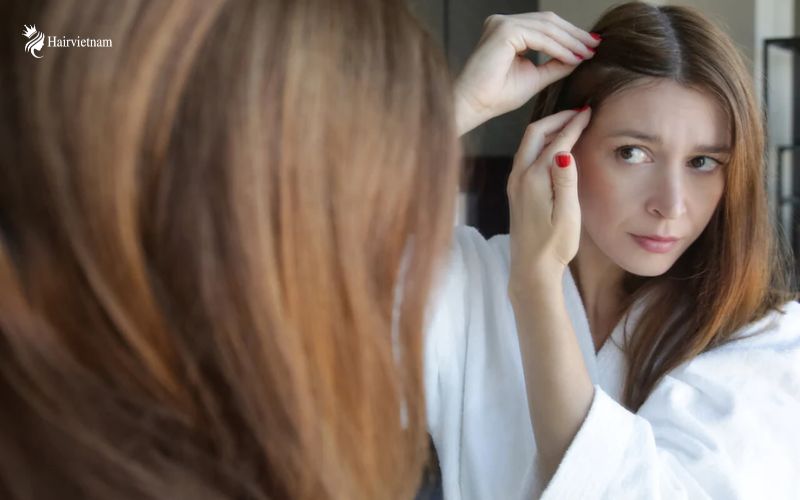
Treatments for Tender Spot on Scalp
You have ever sat down and stared at that one tender spot on your scalp and wondered where it came from? It's Scalp tenderness. If you happen to find that you are among those asking why is my scalp tender in one spot, here is the answer. Ignored as a little hassle, it, in reality, impacts well-being and comfort substantially. This article aims to unfold the secret behind the cause of scalp tenderness in one spot and go beyond to offer detailed guidelines for best practices in relief. Read to learn everything.
1. Understanding Scalp Tenderness
Scalp tenderness, which presents as a localized disability or soreness of the scalp, is a problematic but widely spread condition that many people suffer from. Its intensity is usually limited from mild unpleasantness to terrible pain, focused on certain body parts. Scalp tenderness has become very common; however, its usual misunderstanding makes it hard for irritated people to seek a solution to why their scalp might be tender in a specific area.
Understanding Scalp Tenderness
2. Why Is My Scalp Tender in One Spot?
Why Is My Scalp Tender in One Spot, here are some causes that can give the answer of your question;
Dermatitis:
The term dermatitis is a broad categorization that includes diseases ranging from seborrheic dermatitis, contact dermatitis, and atopic dermatitis, which all share the symptoms of dry skin, redness, and itchiness. In the scalp, it will cause the scalp may become tender.Contact dermatitis may be initiated by a variety of factors like genetics, overactive immune system, allergies, or irritants that include aggressive hair care products, harmful environmental pollutants, and some fabrics. Skin trigger factors, recognition gentle skin care products and scalp treatment application are the features of management.
Infections:
Pathogens, including viruses, fungi (such as ringworm), parasites (like head lice), or bacteria, can actually cause problematic scalp infections that may result in irritation and pain. Diseases such as folliculitis, a bacterial infection of the hair follicles, or furunculosis, a localized inflammation of the hair follicles with pus, can cause very sore spots.Early intervention with antimicrobial drugs, antibiotics, or antifungals is imperative to prevent further development of the condition and lead to restoration of the scalp's health.
Psoriasis:
Psoriasis is a chronic autoimmune skin disease consisting of ooze red, itchy, scaly lesions on the skin. Scalp psoriasis is a common condition that is scalp plain of articular based on endocipped stem cells (Keratinocytes). It is believed that the disease is linked to the dysfunctional immune system, which would mean that the cycle of the skin cell replacement would be faster.Scalp psoriasis in particular, requires specific treatment as it may be treated with topical corticosteroids and vitamin D analogs or tar-based products and phototherapy to control symptoms and prevent flare-ups.
Sunburn:
Long-term exposure to ultraviolet (UV) rays from the sun can harm the scalp, which pain, redness, and peeling skin, commonly known as sunburn. The scalp of many people is directly exposed to sun, mainly those with thinner hair or with areas where hair is thinning. Such preventive measures as using hats, applying specially formulated vests, and seeking shade might help protect oneself from sunburn and associated discomfort.Tension Headache:
Tension headache is commonly occasioned by stress and muscle tension or poor posture. It is typed as a band-like sensation around the head and scalp, felt as tightness on the head. So, it may give you a scalp tenderness or such as dull pressure or ache. Home remedies involving hot/cold therapy, relaxation methods, and over-the-counter painkillers may be used to get relief. In chronic cases, the role of doctors will be limited to managing the condition correctly.Temporal Arteritis:
Temporal arteritis is a lesser common but serious condition, known as giant cell arteritis, which involves inflammation of the temporal arteries near the temples. Among a number of manifestations including headaches and jaw pain, scalp tenderness is a top characteristic of this disorder. Acute treatment with glucocorticoids is highly important and might halt the damage to eyes and other complications related to this disease.
Learn More: Why is my Hair Falling Out?
Fibromyalgia:
Fibromyalgia is a chronic condition defined by generalized musculoskeletal pain, fatigue, and sleep disturbances. Besides various symptoms, scalp tenderness is a common symptom and can be paired with high sensitivity to touch and pressure. Treatments mainly target symptoms and involve the use of medication (such as antidepressants, anticonvulsants, or muscle relaxants) alongside self-care techniques (e.g., stress management, exercise, or relaxation therapies) that help improve patients' overall quality of life.Hair Extensions:
Though extensions can make hair more voluminous and add some lengthiness, they can also cause scalp discomfort, headaches, and hair loss, mainly if installed improperly or worn for too long. Traction alopecia, a type of hair loss that occurs due to constant pulling or strain at the hair roots, may cause sensitivity in the scalp. Typically, taking scalp extensions off and giving the scalp a chance to breathe and be healed are needed to relieve pain and to ensure better hair and scalp health.HairVietnam Factory are widely known for their superior quality and versatility. These extensions are designed with attention to detail and quality in order to achieve a natural look and feel. It is safe to say that you should strictly observe instructions of care and give your hair a rest from extensions to make your scalp healthy. Whether you're after some extra length or body, or to help you style, hair extensions by HairVietnam are the ideal extensions that will let you do it with confidence.
2. Treatments for Tender Spot on Scalp

Treatments for Tender Spot on Scalp
Gentle Hair Care
Gently treating your hair is a practice that can significantly help relieve painful scalp issues. This includes:- Avoid tight hairstyles: Hairdo styles like ponytails, braids, and up-dos that pull the scalp too tightly would cause frustration and soreness. Wearing loser styles can help reduce the pain around the scalp.
- Minimizing scalp manipulation: Excessive brushing, combing, and styling can be bad as they will irritate the scalp and aggravate the tenderness. Hair brushing and combing if performed in a gentle way without traumatization using big tooth combs or brushes can limit the stress and irritation.
Topical Treatments:
Depending on the root cause of scalp tenderness, healthcare professionals can offer a range of topical agents to treat localized inflammation or infections appropriately. These may include:- Medicated shampoos: Shampoos that have sulfur, zinc pyrithione, or coal tar as the main ingredient help to reduce inflammation and relieve symptoms of dandruff, seborrheic dermatitis, or scalp psoriasis.
- Corticosteroid creams: Topical steroid creams or ointments may be given to reduce inflammation and help with itching and burning that develops in conditions such as contact dermatitis or scalp psoriasis.
Medication:
In some occasions, medication may be required for dealing with scalp tenderness, especially in the case of comorbidities such as tension headaches. The use of medications is ideal where discomfort occurs either due to scalp or comorbidity (i.e., fibromyalgia). Treatment options may include:- Pain relievers: Although over-the-counter nonsteroidal anti-inflammatory drugs (NSAIDs) such as ibuprofen or naproxen may be used to decrease headache pain or inflammation of scalp tenderness, these drugs should be avoided where a blow to the head has occurred or the family has a history of any bleeding problems.
- Prescription medications: In the event of severe scalp tenderness that is chronic in nature, healthcare providers may prescribe strong pain medications or medications such as tricyclic antidepressants, anticonvulsants, or muscle relaxants to alleviate the symptoms.
Sun Protection:
Prevention of sunburns and minimizing sun exposure can help to relieve pain and discomfort that usually accompanies scalp irritation. Sun protection measures may include: Sun protection measures may include:- Wearing hats or scarves: Wearing a wide-brimmed hat or scarf can provide shade and thus be protective of scalp and reduce the possibility of scalp sunburn and any resulting tenderness.
- Applying sunscreen: Use of the scalp-specific sunscreen is crucial when it comes to the prevention of burns that are caused due to excessive exposure to UV rays. Remember to apply sunscreen with an SPF of a high number and reapply frequently if you are sweating or swimming.
Learn More: DIY Natural Hair Masks for Dry Hair





_cr_380x240.jpg)
